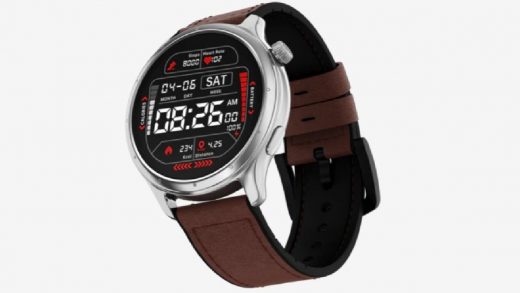:format(webp)/https://www.thestar.com/content/dam/thestar/entertainment/music/2022/11/15/toronto-songstress-martina-sorbara-and-the-return-of-dragonette/main_press_photo_shervin_lainez.jpg)
Martina Sorbara quips that every interview she’s done in support of Dragonette’s long-gestating new album, “Twennies,” turns out to be “a little bit therapy.”
This makes perfect sense, since the very act of making the record was something of a therapeutic process for the Toronto electro-pop songstress. During the six years since Dragonette’s last recording, 2016’s “Royal Blues,” Sorbara experienced the final dissolution of the original creative partnership at the heart of Dragonette, the start of a new romantic relationship and the subsequent birth of her first child followed by the further life-disrupting chaos of the COVID-19 pandemic, all the while wrestling with what form her musical career would take in the future.
All this upheaval audibly informs what might just be Dragonette’s finest album yet, a mature, three-dimensional pop offering that grapples with the simultaneous terror and thrilling potential of Big Change before confidently accepting that sometimes Big Change is the only way forward.
“Dragonette was on the gurney,” admitted Sorbara over a post-rehearsal pint at her local microbrewery in the Roncesvalles neighbourhood. “I was just, like, ‘I’m gonna go make some music and we’ll defibrillate you if we need you. I’m gonna go make this record and we’ll see what it is and then maybe we’ll take you off life support.’ And then I was, like, ‘No, no. I have to.’ Because now Dragonette feels like mine.”
It seems odd that Sorbara, 43, would be nervous about carrying Dragonette — which she formed with her ex-husband, Dan Kurtz, 15 years ago — ahead as a solo act since she began performing and recording as a solo act when she was just 16.
But once she and Kurtz decided, after making “Royal Blues” together six years ago despite their recent separation, to part ways creatively, as well, it took her some time to claim the name and the legacy of Dragonette as her own. And also to realize that she was now in a position to do whatever she wanted with it.
“I wasn’t going to wrap up shop. I was doing well just floating around the world writing with other people, doing collaborations,” she said. “I’d started writing for other artists, and I love collaborating and I love writing and I love releasing music. It was just the idea of having to put something that’s just mine behind my name and being the only person in the picture.”
A series of encounters with potential label suitors didn’t help her disenchantment, as A&R professionals offered Sorbara — whose done just fine penning top-shelf pop fodder in the past with the likes of Martin Solveig and Kaskade, as well as for other artists such as Carly Rae Jepsen and Keith Urban — guidance towards the future in the form of radio-ready playlists that really didn’t sit comfortably with her.
“I don’t want to diss what’s on the radio but it just was, like, ‘If I’m supposed to try to get on the radio, I don’t want to make music anymore,’” she recalled. “It’s not like ‘Music used to be better and now it sucks.’ I just don’t want to make that. It’s not that it’s bad. It’s just not for me. Maybe I aged out of it. I don’t know.
“It wasn’t even like it was bad music. It was just, like, ‘No, I can’t do that.’ My soul just reacted in a way where I thought ‘If that’s what I’m supposed to do, maybe I’m not a band anymore because I don’t want to do that.’”
A fortunate encounter with producer Dan Farber, who’s worked with Lizzo and Dizzee Rascal in the past, during a “random” writing trip to Los Angeles proved to be the catalyst for “Twennies” — even if it took Sorbara some time to wake up to that fact.
One of the first tunes the two wrote together was the sweet, bossa nova-tinged ballad “This Is All You Get,” yet at the time of its creation Sorbara deemed it a bad fit for Dragonette. Yet as time moved on, it dawned on her that now that Dragonette was just her, Dragonette could sound like whatever the hell she wanted Dragonette to sound like. She could even re-embrace her “inner Ani DiFranco” and take the music in directions that hearken back to her formative years as a folk singer/songwriter. Farber was a willing co-conspirator.
“He’s so amazing. I’ve worked with so many people over the last 10 years when I started just walking in with strangers or whatever,” she said, “but I’ve never made a musical connection where all of a sudden you’re speaking a creative language with such easy flow and there’s no weird judginess and I’m not going to censor anything and that was how it was from the very beginning. We wrote that song and I was, like, ‘Too bad it’s not Dragonette.’ But with time and space and feeling like I could do whatever I want, it went from being ‘I can do whatever I want. This has to be a Dragonette record and this is how I make this thing mine.’ It was a thing I had to do to own the past 15 years of my life.”
With “Twennies” thrown out to the world at large on Oct. 28, Dragonette returns to a Toronto stage on Thursday at the Axis Club. It’s one of only a handful of gigs she’s done since the last record, but the first — a trip to the Planet Pride celebrations in Brooklyn last summer which she almost cancelled at the last minute — gave her inner confirmation that she was capable of claiming Dragonette as her own.
After performing the worldwide smash “Hello,” a 2010 collaboration with DJ/producer Solveig that was back on the Billboard charts this year thanks to its inclusion in the TV series “Ted Lasso,” before the Planet Pride crowd Sorbara wandered around and heard “Hello,” her Kaskade cut “Fire In Your New Shoes” and her Galantis co-write “Peanut Butter Jelly” being spun to delirious crowds by other DJs. It was a welcome boost of confidence.
“I wrote all these songs but I’d never in my life allowed myself to feel that,” she said. “It was like something happening outside of me and I couldn’t take ownership of it and, for some reason, I don’t know if it’s because now Dragonette is me and it’s mine I feel myself more holistically in this thing and I’m like ‘Wow, I did all those things.’ And those songs are living on. ‘Hello’ was on the top of the f—ing Billboard charts this year. That’s a f—ing classic.”
“My point is not tooting my own horn or saying ‘Look at all this sh— I did,’ but for the past 10 years I never took ownership of it. I just flew down there by myself. I had no entourage. I was a floater. And then I got up onstage and I sang for the first performance and something about the aloneness of me there, I think, made me realize all of a sudden ‘Oh, I had to do this.’ I woke up to my autonomy and my ownership of all this stuff and then I kept hearing my songs and all of a sudden I owned them and I was me.”
JOIN THE CONVERSATION
:format(webp)/https://www.thestar.com/content/dam/thestar/entertainment/music/2022/11/15/toronto-songstress-martina-sorbara-and-the-return-of-dragonette/press_photo_2_shervin_lainez.jpg)



